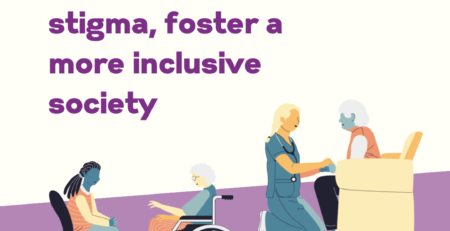Attention deficit hyperactivity disorder (ADHD) is a common neurodevelopmental disorder that can significantly impact a person’s ability to regulate behaviour and attention. One of the core deficits associated with ADHD is impaired executive functioning. As we discussed in a previous post on neurodiversity and executive functioning, executive functions are cognitive processes that help us with planning, organisation, managing time, paying attention, remembering details, and controlling emotions.
In relation to our previous blog “Unpacking the Link Between Neurodiversity and Executive Functioning“, we will be discussing specifically how ADHD can affect key aspects of executive functioning and lead to challenges in daily living. By understanding these connections, people with ADHD can better recognise their strengths and challenges, and develop skills and strategies to navigate daily responsibilities.
Understanding ADHD and Executive Functioning Difficulties
The interplay between ADHD and a person’s executive function skills is evident in three primary areas:
- Working Memory: This involves the ability to temporarily store information in the mind and retrieve it when needed.
- Flexibility: It encompasses the capacity to view and think about something in multiple ways.
- Self-Control: This refers to the ability to maintain focus and resist distractions and temptations.
ADHD and Working Memory
Working memory is our ability to hold information in our mind long enough to use it. This acts as our “mental workspace” when we need to keep track of things momentarily, like remembering a phone number long enough to dial it. Working memory is crucial for everything, from following instructions to doing mental maths.
Many people with ADHD struggle with working memory. They may have trouble remembering multi-step directions, recalling facts, or keeping track of plot points when reading. A poor working memory explains why individuals with ADHD often lose their train of thought mid-sentence or walk into rooms only to forget why.
Strategies like writing things down, making lists, and minimising distractions can help compensate when working memory falls short. Apps and tools like calendar alerts, voice recorders, and digital organisers are useful aids. It also helps to focus on one task at a time instead of multitasking. Breaking larger tasks into smaller chunks can make them more manageable.

ADHD and Organisation
Staying organised is another common challenge for those with ADHD. At home, this may lead to clutter and difficulty finding important items like keys or bills. At school or work, poor organisation leads to forgotten assignments, misplaced paperwork, and perpetual lateness.
ADHD can make it hard to create and stick to systems that keep things orderly and in their place. Establishing new habits takes time, effort, and repetition – things that are inherently tough for people with ADHD. Organisation struggles also connect back to working memory. If you can’t remember where you put something, it’s easy for clutter to accumulate.
Using visual cues like bulletin boards, labels, and colour-coding can provide handy reminders about where things belong. Digital tools like file folder systems, calendar apps, and pocket scanners help create structure. For big projects, breaking tasks into sub-steps and using checklists brings order to the process. Enlisting family to help institute organising systems also improves follow-through.
ADHD, Time Blindness, and Task Initiation
Managing time is an aspect of executive functioning that poses consistent problems for those with ADHD. Many struggle with punctuality and meeting deadlines. They misjudge how long tasks will take and underestimate the passage of time. This “time blindness” makes it hard to stay on schedule.
Getting started on tasks can also be excruciating for those with ADHD. The term “activation energy” refers to the initial push required to kickstart a task. ADHD makes it hard to self-motivate, causing problems getting off the couch, opening a book, or beginning an assignment.
Using timers and alarms helps counteract time blindness. Setting phone alerts 15 minutes before you have to leave someplace, or breaking study sessions into 25-minute intervals, provides time checks. If initiation is the problem, putting on shoes and coat before sitting down to work signals your brain it’s time to start. Accountability partners, physical proximity to others working, and competition apps like Forest also boost activation energy.

ADHD and Impulse Control
Impulsivity is a hallmark of ADHD. People with ADHD tend to act spontaneously without fully considering potential consequences. This manifests in social missteps like interrupting others or being over talkative. It also leads to risky behaviours like overspending and substance misuse. Kids with hyperactive ADHD especially struggle to control impulses.
Improving impulse control takes conscious effort. Finding healthy outlets like exercise, art, or gaming helps redirect impulsive energy. When you catch yourself interrupting someone, make a mental note or subtle physical gesture (like lightly tapping your leg) to avoid doing it again. If making impulse purchases online is an issue, leave items in your cart for 24 hours before purchasing. Removing digital payment methods from your phone also adds a speed bump for spontaneous purchases.
ADHD and Emotional Regulation
Many people with ADHD have trouble managing emotions. They may be prone to emotional outbursts and moodiness. Some also deal with a persistent sense of underachievement or failure. The difficulties of ADHD can be demoralising, damaging self-esteem over time.
Building emotional awareness helps identify points of volatility. Keeping a mood journal can reveal triggers for specific feelings. Practising mindfulness improves the ability to acknowledge and accept emotions before reacting to them. Talking feelings through with trusted loved ones provides perspective.
It also helps to celebrate small successes. Meeting a friend for coffee may not seem like an accomplishment, but viewing small positive interactions as “wins” boosts motivation. For big goals that feel daunting, pursuing subgoals still gives a sense of progress. With emotional regulation, the ultimate goal is recognising emotions before they escalate and maintaining balance.
Leveraging ADHD Strengths
While ADHD poses many challenges, it can also come with standout strengths. Many with ADHD are highly creative, spontaneous, energetic, and intuitive thinkers. They bring fresh perspectives to solve problems.
People with ADHD often thrive under tight deadlines and open-ended projects with room for improvisation. Letting their minds wander or work hands-on also suits their learning style. Seeking out careers and hobbies that tap these innate strengths allows their ADHD traits to excel rather than cause impairment.

An Integrated Treatment Approach
Managing ADHD requires an integrated strategy. Evidence-based treatments include:
- Medication to alleviate symptoms and boost focus. Stimulants like methylphenidates are most common.
- Talk therapy to work through daily challenges and low self-esteem. Cognitive Behavioural Therapy is particularly effective.
- Skills coaching to develop organisational systems, make lifestyle adjustments, and practise new habits.
- ADHD-friendly changes at home and work, like minimising distractions in workspaces and using apps/reminders.
- Education for families to understand ADHD and provide support. ADHD parenting classes can help.
While ADHD presents very real struggles, the right treatment approach helps establish the skills, habits, and environmental tweaks to not just cope but thrive. With improved executive functioning, those with ADHD can better maximise their potential and navigate daily responsibilities.
The key is using strategies that work with the ADHD brain rather than against it. Accommodating one’s strengths and challenges fosters overall well-being. There are also great ADHD communities and resources available to remind them, that they’re not alone in their challenges.
While ADHD certainly creates difficulties, it does not preclude success or wellbeing. By better understanding the root causes of their executive functioning challenges, people with ADHD can consciously implement the right supports. This knowledge ultimately allows those with ADHD to play to their strengths and thrive.











